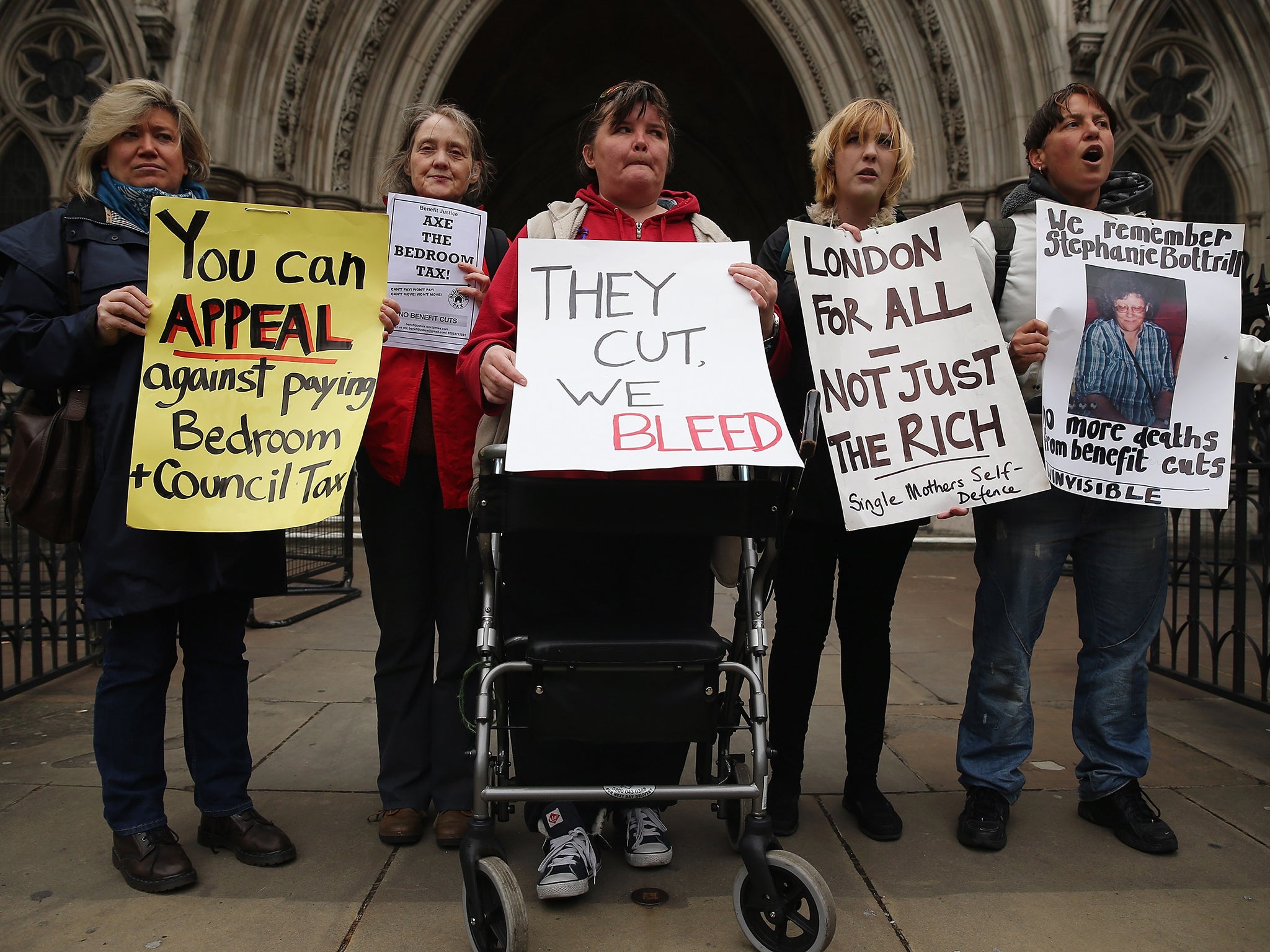Social justice has been the biggest disappointment under this government
Since the election, the burden of closing the deficit was planned to fall overwhelmingly on the working poor

Your support helps us to tell the story
From reproductive rights to climate change to Big Tech, The Independent is on the ground when the story is developing. Whether it's investigating the financials of Elon Musk's pro-Trump PAC or producing our latest documentary, 'The A Word', which shines a light on the American women fighting for reproductive rights, we know how important it is to parse out the facts from the messaging.
At such a critical moment in US history, we need reporters on the ground. Your donation allows us to keep sending journalists to speak to both sides of the story.
The Independent is trusted by Americans across the entire political spectrum. And unlike many other quality news outlets, we choose not to lock Americans out of our reporting and analysis with paywalls. We believe quality journalism should be available to everyone, paid for by those who can afford it.
Your support makes all the difference.The Independent on Sunday has never been party political. We have not advised our readers how to vote. We have always, however, been strongly committed to values and causes. We were founded 26 years ago as a European, green newspaper, socially and economically liberal and wedded to social justice.
That was why, when David Cameron became Prime Minister six years ago, at the head of a coalition with the Liberal Democrats, we gave him the benefit of the doubt. We worried about his, and his party’s, Euroscepticism, but we accepted that the doubts of the British people about the European Union had to be recognised and thought that his pragmatic approach might be effective.
We thought his early aspiration to be the greenest government ever was a little extravagant, but it was, in truth, a low bar. Not only that, but he had said the right things in opposition, and a Lib Dem was now Energy and Climate Change Secretary.
Finally, we thought his rebranding as a compassionate Conservative was more than a cosmetic exercise. While we disagreed with the speed at which he and George Osborne planned to cut the deficit, we thought it would be done in such a way as to protect people on low incomes.
We even respected the rebirth of Iain Duncan Smith, the anti-EU rebel and Thatcherite former leader, as a crusader against poverty. So now, six years on, where do we stand?
On Europe, The IoS respects the democratic case for the referendum, although its timing has been decided by the need to manage a divided Conservative Party rather than by the changes in the EU. Mr Cameron’s renegotiation was a sensible rebalancing of the relationship. We are impressed by his appeal to you today to vote to stay in the EU on 23 June for the sake of your children and grandchildren. If he succeeds, that would be very much in the national interest.
On the other two fronts, however, we have been, as the Prime Minister said in his reply to Mr Duncan Smith’s letter of resignation on Friday, “puzzled and disappointed”. The clean green rhetoric of the early days gave way to the cynical ambition to be the slowest ship in the EU environmental convoy. At best, Mr Cameron’s record has been mixed, at a time when climate change has been a long global emergency.
It is on social justice, however, that we have been most disappointed.
Over Mr Cameron’s first five years, Mr Osborne halved the deficit, which is what we thought his target should have been in the first place. Unfortunately, the deep cuts in public spending in the first two years stalled the recovery that had been under way. But those on low incomes were protected and, thanks to an unexpected jobs miracle, inequality of incomes actually fell slightly.
Looking back, it may be that Nick Clegg and Danny Alexander did more than was appreciated at the time to ensure that the burden of deficit reduction was borne reasonably fairly.
Since May’s election, however, the burden of closing the rest of the deficit was planned to fall overwhelmingly on the shoulders of the working poor. Mr Osborne’s first attempt to cut tax credits was beaten back in the House of Lords, but last week’s Budget confirmed that the low-paid and disabled will lose over the next four years, while top-rate taxpayers will gain.
Mr Duncan Smith may not have resigned simply as a protest against such manifest unfairness, but if he had he would have had our full support. The Chancellor had the gall to use the phrase “social justice” in his Budget speech. The Prime Minister ought to insist that Mr Osborne change direction now, so that he and Mr Cameron could aspire to use the words without blushing.
Join our commenting forum
Join thought-provoking conversations, follow other Independent readers and see their replies
Comments